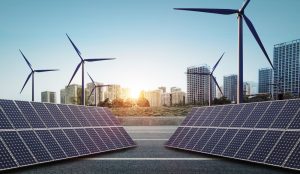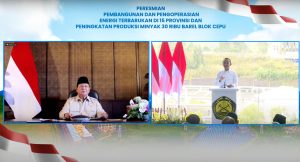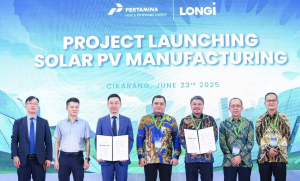Jakarta – The Institute for Essential Services Reform (IESR) asserts that successful decarbonisation of Indonesia’s transportation sector requires cross-sector collaboration and structured policy mechanisms. IESR’s study in the Indonesia Energy Transition Outlook (IETO) 2024 shows that the transportation sector is still the second largest contributor to greenhouse gas (GHG) emissions in Indonesia, with passenger vehicles as the primary contributor.
IESR Sustainable Mobility Analyst Rahmi Puspita Sari said concrete steps are needed, including support from various stakeholders, such as central and local governments, companies, and the general public.
“Strategic collaboration and detailed mechanisms are important foundations for decarbonisation implementation. This includes solid coordination between the central and regional governments, as well as clarity of responsibilities at each stage,” he said at the EnergiXplor event organised by Generasi Energi Bersih (GEN-B) South Jakarta and IESR, Friday, November 1.
According to IESR data, in 2021, the transportation sector will produce around 150 million tons of carbon dioxide equivalent. Of this total, about 73.1 per cent comes from passenger vehicles, especially those that still rely on fossil fuels. The study shows the urgent need for a comprehensive decarbonisation strategy, including adopting low-emission vehicle technologies such as electric vehicles and using environmentally friendly public transport.
Low-emission transportation
IESR sees the importance of innovative steps to reduce emissions from the transportation sector, one of which is using electric vehicles. GEN-B South Jakarta Chairperson Gieska Aulia Permana stated that people’s dependence on fuel oil (BBM) needs to be addressed with sustainable transportation solutions.
“The use of electric vehicles can be a positive step. However, the impact will be much more significant if the electricity comes from renewable sources such as solar power,” said Gieska.
Furthermore, Gieska also mentioned that fuel use in Indonesia’s transportation sector has increased since 2015, reaching 1.2 million kilo litres per year before declining in 2020 due to the Covid-19 pandemic. Seeing this trend, GEN-B and IESR encourage the broader use of renewable energy to reduce dependence on fossil fuels.
IESR emphasises that decarbonisation is the responsibility of the government and society. Rahmi introduced three approaches to help individuals reduce transportation emissions: Avoid, Shift, and Improve.
Avoid means avoiding unnecessary trips, Shift means choosing low-emission modes of transportation, such as public transport, and Improve means improving the efficiency of the vehicles used, for example, by switching to electric vehicles.
“People can apply these strategies daily, according to their environment and activities. The government also provides environmentally friendly infrastructure, such as Transit Oriented Development (TOD), to encourage people to switch to public transportation modes,” Rahmi explained.
In EnergiXplor, IESR and GEN-B South Jakarta invited participants from various backgrounds to visit several facilities related to electric vehicles, including PT Mobil Anak Bangsa Indonesia, Elders Garage, Electric Vehicle Charging Station in Gambir, and MRT Depot Lebak Bulus. This activity will provide a deeper understanding of low-emission transportation practices and technologies.
IESR also encourages the government to provide regulations and incentives that can accelerate transportation decarbonisation.
“Integrated policies from the centre to the regions, involving various actors from the public and private sectors, are key factors. Policy mechanisms need to include incentives for using electric vehicles and subsidies for renewable energy development,” Rahmi concluded.
Through the combination of technology, innovation, and cross-sector collaboration, IESR hopes that Indonesia can reduce emissions from the transportation sector and support carbon-neutral targets. (Hartatik)













